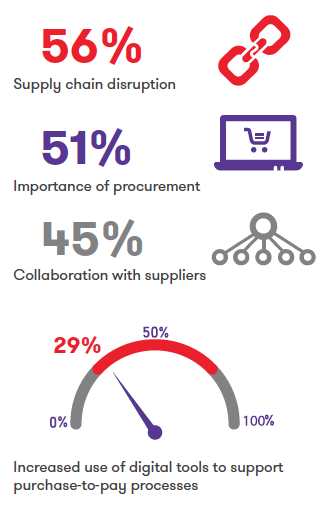
Covid-19 has had a profound effect on procurement in maintenance, repair and operations, but many businesses have managed to adapt, evolve and thrive, according to a new report.
The annual Indirect Procurement Report, published by RS Components in partnership with the Chartered Institute of Procurement and Supply, is the result of a survey conducted among 1001 procurement professionals globally.
According to the report, The Evolution of MRO Procurement, though pressure to reduce budgets and rationalise suppliers remains, in many other respects “Covid-19 has changed the world of procurement profoundly”.
Considering changes since Covid-19, over half of those surveyed (56%) had experienced supply chain disruption. In the UK, almost half (45%) said they had increased collaboration with suppliers as a result of the pandemic. Almost a third reported reduced spending on maintenance, repair and operations.
The pandemic had driven some companies to innovate by accelerating digitalisation, the survey found. Over three in ten (33%) UK respondents said they had increased their use of digital tools to improve the purchase-to-pay process as a result of the pandemic. A half said their customers were using their e-procurement system to place orders directly.

This year’s survey asked about business continuity planning for the first time. Four in ten respondents said this was a key strategy in their business, second only to sustainable and ethical procurement.
But the biggest day-to-day challenges remained making annual savings (51%) and managing stakeholders over multiple sites (45%).
RS Components EMEA president Pete Malpas said: “This year’s report offers an excellent insight into everything that has changed or evolved in the world of procurement since 2019. Disrupted supply chains, the continued need to reduce costs as the economic impact of the pandemic bites, and the problem of suppliers going out of business have produced significant challenges. But, at the same time, the crisis has increased the importance and the professional standing of skilled procurement professionals in many organisations. It has proved an opportunity for procurement to show what it can do in the face of a global emergency.”
Respondents were drawn from sectors including manufacturing, the public sector, energy, logistics & retail, transport, defence and technology, covering job functions from operational through to director level.
The full report can be found at www.rs-connectedthinking.com/en/insights-1-1/2020-indirect-procurement-report

